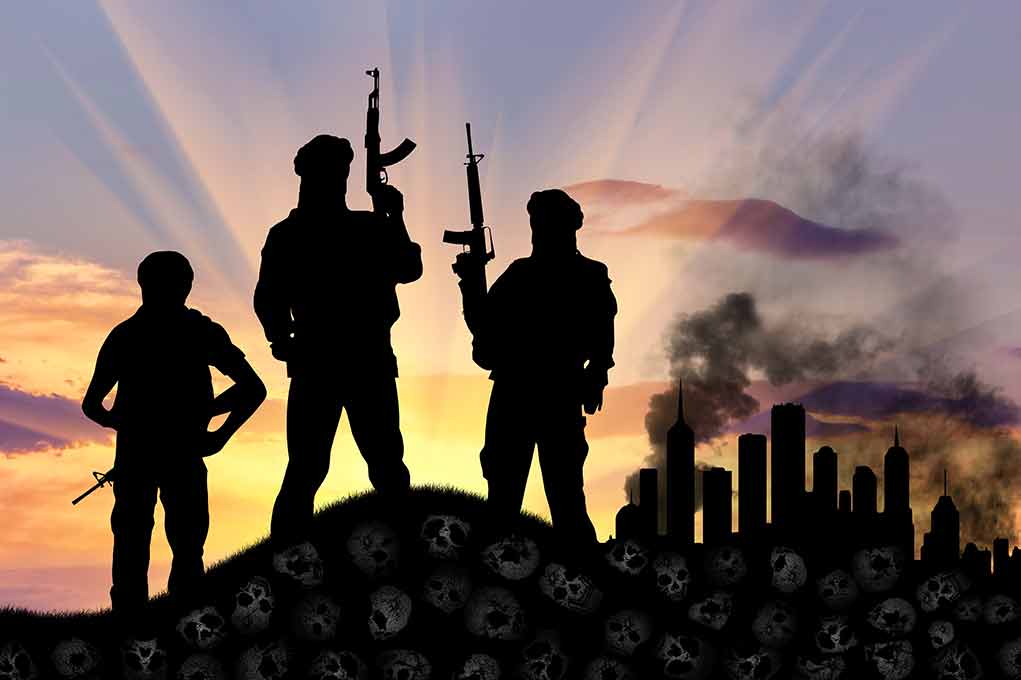
Russia steps in as peacemaker between India and Pakistan as nuclear tensions escalate following a deadly terrorist attack in Kashmir that killed 26 civilians, with Moscow offering diplomatic channels to prevent a potential catastrophic conflict in South Asia.
Key Takeaways
- The Kremlin has called for immediate de-escalation between India and Pakistan after a terrorist attack in Kashmir that killed 26 civilians
- Russia has offered to mediate the conflict, with Foreign Minister Sergei Lavrov already communicating with both nuclear-armed nations
- India has responded with diplomatic and economic measures against Pakistan, including border closures and treaty suspensions
- Pakistan has conducted missile tests amid rising tensions, while denying involvement in the Kashmir attack
- The situation draws parallels to previous India-Pakistan conflicts that led to military strikes across borders
Terror Attack Ignites Regional Crisis
A militant attack in Pahalgam, Indian-administered Kashmir, has left 26 civilians dead and the region on the brink of conflict between two nuclear powers. The attack bears striking similarities to the 2008 Mumbai attacks, with India quickly accusing Pakistan-based militant groups of orchestrating the violence. Pakistan has vehemently denied these allegations, creating a dangerous standoff reminiscent of previous confrontations that led to military action. India has historically responded to attacks in Kashmir with force, including the 2016 surgical strikes and 2019 airstrikes in Balakot, raising concerns about potential escalation.
Instead of immediate military action, India has initiated diplomatic and economic countermeasures, including closing borders, suspending treaties, and expelling Pakistani diplomats. Both countries have engaged in retaliatory actions, with visa suspensions and airspace restrictions being implemented. The Indus Waters Treaty, crucial for Pakistan’s water security, now hangs in the balance as India considers leveraging water resources as a strategic pressure point. These non-military responses, while significant, may only be preliminary moves in what could become a more serious confrontation.
BREAKING – Russia calls for de-escalation in India-Pakistan tensionshttps://t.co/AxlnVwnksk
— Insider Paper (@TheInsiderPaper) May 5, 2025
Russia’s Strategic Diplomatic Intervention
The Kremlin has positioned itself as a potential mediator in the escalating crisis, with Russian officials urging both sides to pursue peaceful resolution. Kremlin spokesman Dmitry Peskov has expressed serious concern over the tense situation, calling for measures to reduce tensions between the nuclear neighbors. This intervention reflects Russia’s strategic interests in maintaining stability in South Asia, where it has significant partnerships with both countries. President Putin has personally assured Indian Prime Minister Narendra Modi of Russia’s support, underscoring the strength of the Russia-India relationship.
“There are striking parallels between the aftermath of the Pulwama bombing and the killings in Pahalgam,” said Ajay Bisaria, former Indian High Commissioner to Pakistan.
Russia’s involvement is particularly significant given its position as India’s largest weapons supplier and its growing relationships with Pakistan. Foreign Minister Sergei Lavrov has already opened channels of communication with both countries, offering Moscow’s services as a neutral third party. While the West remains distracted by conflicts in Ukraine and the Middle East, Russia has seized the opportunity to demonstrate its diplomatic influence in Asia. This approach aligns with President Trump’s vision of America focusing on domestic priorities while encouraging regional powers to manage their own neighborhood disputes.
Escalating Military Postures
The situation has become increasingly volatile with Pakistan conducting a second missile test since tensions began. This provocative action suggests Pakistan is preparing for potential military confrontation, despite diplomatic efforts. The threshold for military escalation between India and Pakistan has increased since 2016, with cross-border operations and aerial strikes becoming more common responses to terrorist incidents. India’s restraint thus far is notable, but historical patterns suggest military action remains a possibility if diplomatic pressure fails to produce results.
“This attack carries elements of Pulwama, but much more of Mumbai,” warned Ajay Bisaria emphasizing the serious nature of the current crisis.
India continues to push for international recognition of Jaish-e-Mohammad as a terrorist organization, seeking to isolate Pakistan diplomatically. Meanwhile, reports suggest Turkey has dispatched naval assets to support Pakistan, while Russia has supplied advanced Igla-S missiles to India, further militarizing the standoff. This arms support demonstrates how major powers are taking sides in the conflict while simultaneously calling for peace, highlighting the complex geopolitical interests at play in South Asia. For American interests, Russia’s diplomatic engagement represents a challenge to U.S. influence in a strategically vital region.




